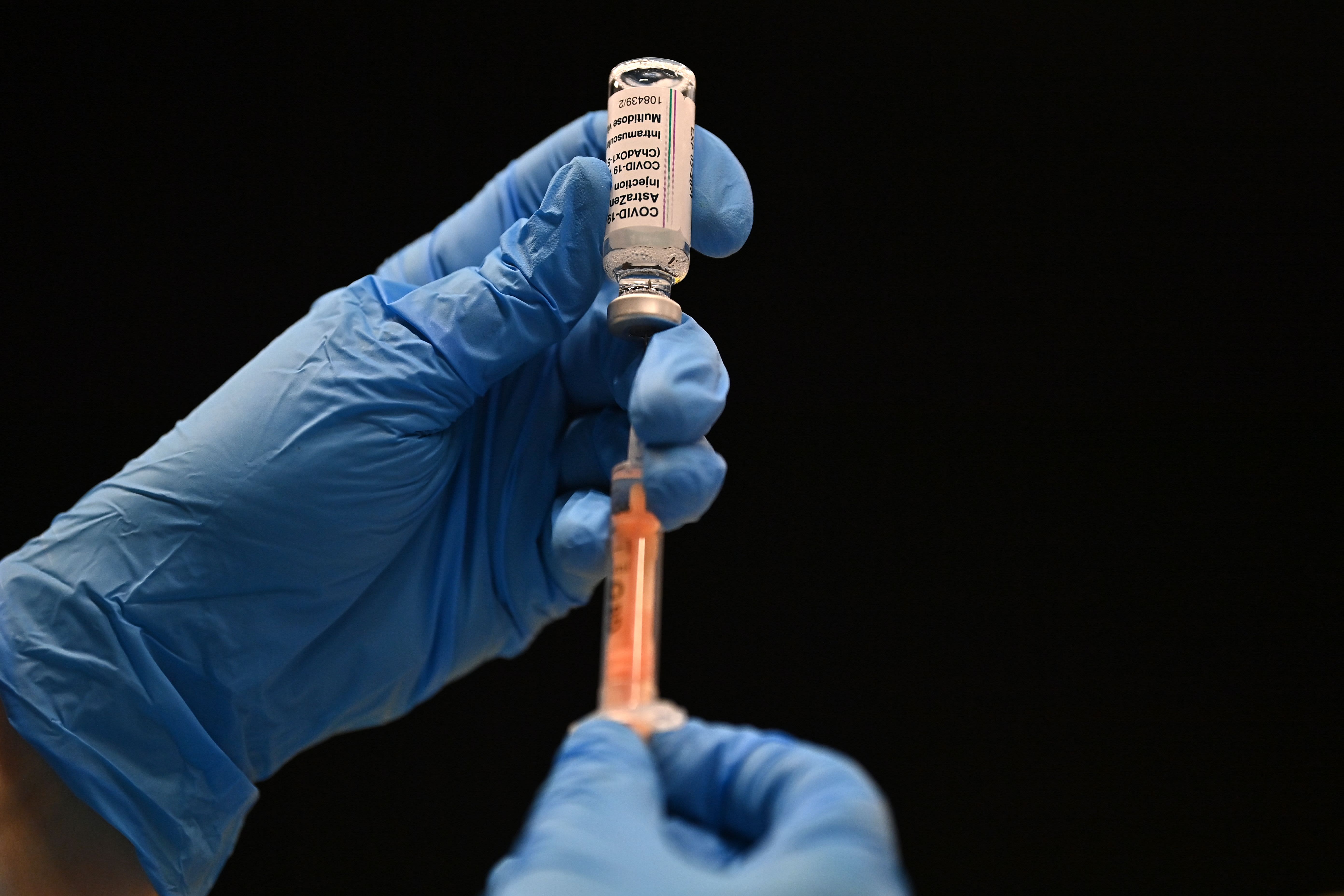AstraZeneca vaccine found to be 79% effective in U.S. trial, ‘no increased risk’ of blood clots

A healthcare professional draws up a dose of the Oxford/AstraZeneca Covid-19 vaccine at the vaccination centre set up inside Brighton Centre in Brighton, southern England, on January 26, 2021.
Ben Stensall | AFP | Getty Images
LONDON — The findings of a large U.S. trial have shown that the coronavirus vaccine developed by AstraZeneca and the University of Oxford is 79% effective in preventing symptomatic illness and 100% effective against severe disease and hospitalization.
The safety and efficacy analysis of the vaccine, published Monday, was based on 32,449 participants from a Phase 3 trial.
By comparison, Moderna’s vaccine has been found to be more than 94% effective in preventing Covid, and Pfizer–BioNTech‘s vaccine was found to be 95% effective.
AstraZeneca said it would continue to analyze the data and prepare for the primary analysis to be submitted to the U.S. Food and Drugs Administration for emergency use authorization in the coming weeks.
It comes shortly after a flurry of countries temporarily suspended the use of the shot following reports of blood clots in some vaccinated people. Health experts sharply criticized the move, citing a lack of data, while analysts expressed concern about the impact on vaccine uptake as the virus continues to spread.
Germany, France, Italy and Spain are among those to have resumed use of the Oxford-AstraZeneca vaccine after Europe’s drug regulator said its initial investigation of possible side effects concluded the shot is both safe and effective.
The World Health Organization and the International Society on Thrombosis and Hemostasis have recommended that countries continue to use the Oxford-AstraZeneca vaccine.
AstraZeneca said in a release Monday that an independent board identified no safety concerns related to the shot. They also conducted a specific review of blood clots as well as cerebral venous sinus thrombosis (CVST), an extremely rare blood clot in the brain, with the help of an independent neurologist.
The data safety monitoring board “found no increased risk of thrombosis or events characterised by thrombosis among the 21,583 participants receiving at least one dose of the vaccine. The specific search for CVST found no events in this trial.”
Shares of AstraZeneca traded up almost 1% in early morning deals.
‘Much-needed’ additional vaccination option
Ann Falsey, professor of medicine at University of Rochester School of Medicine, U.S., and co-lead principal investigator for the trial, said: “This analysis validates the AstraZeneca COVID-19 vaccine as a much-needed additional vaccination option, offering confidence that adults of all ages can benefit from protection against the virus.”
The pharmaceutical giant said the shot was well tolerated and its effectiveness was found to be consistent across ethnicity and age.
Notably, the Oxford-AstraZeneca shot was 80% effective in preventing Covid in participants aged 65 years and above.
A healthcare worker receives the Oxford-AstraZeneca Covid-19 vaccine at Chang Gung Memorial Hospital in Taipei, Taiwan, on Monday, March 22, 2021. Taiwan started coronavirus vaccination today.
I-Hwa Cheng | Bloomberg | Getty Images
“These results add to the growing body of evidence that shows this vaccine is well tolerated and highly effective against all severities of COVID-19 and across all age groups,” Mene Pangalos, executive vice president of BioPharmaceuticals R&D at AstraZeneca, said in a statement.
“We are confident this vaccine can play an important role in protecting millions of people worldwide against this lethal virus,” Pangalos said.
Among the participants in the interim analysis, roughly 20% were 65 years of age and above, while approximately 60% had comorbidities associated with an increased risk for progression of severe Covid, such as diabetes or cardiac disease.




